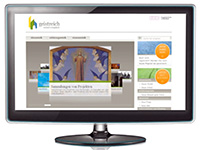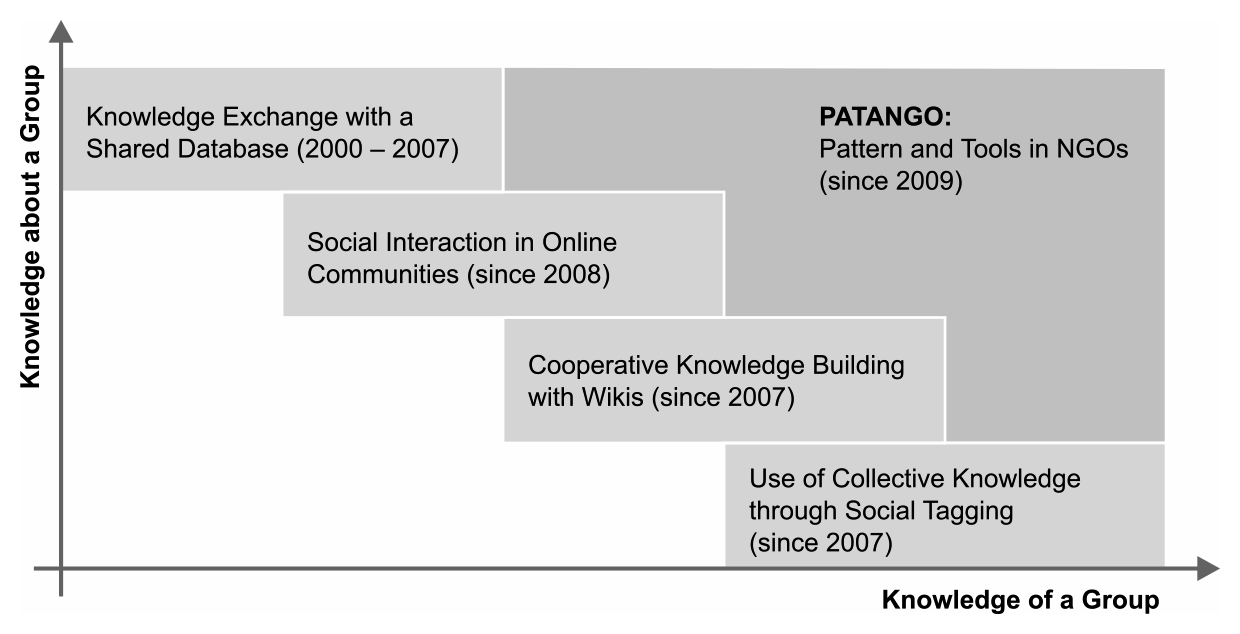Patterns and Tools for Non-Governmental Organizations (PATONGO)
| Workgroup | Knowledge Construction |
| Duration | 03/2009–05/2012 |
| Funding | Federal Ministry of Education and Research, European Social Fund of the European Commission |
Project description
Non-governmental organizations often face the challenge that procedural knowledge cannot easily be transferred between practitioners of different expertise, as there is no possibility for direct observation of good practices. Web 2.0 technologies allow informal exchange of procedural knowledge and the development of a common knowledge representation in organizations. By the use of cooperative knowledge tools such as wikis, for instance, knowledge can be shared and has the possibility to be developed further through the joint use. So-called patterns, that is, structures for the externalization of knowledge, can help to improve the externalization and reception of knowledge between practitioners. Communication between experts and laymen would thus be improved.
 The project PATONGO aims at the investigation of cognitive, social, and motivational factors in the efficient knowledge exchange between practitioners. The project uses findings from the projects "Knowledge exchange with a shared data base" about barriers and facilitators of knowledge exchange, as well as findings on community building from the project "Social interaction in online communities". Moreover, research will be based on results on cooperative knowledge construction from the project "Cooperative knowledge building with wikis" and the project "Use of collective knowledge through social tagging". PATONGO transfers so far mainly experimentally investigated processes into the field and further investigates facilitators of efficient knowledge exchange and knowledge construction in larger organizations. By the example of the Protestant Church Germany, the exchange of good practices and the development of a common knowledge base via web 2.0 technologies will be investigated and optimized. Furthermore, experimental studies investigate to what extent patterns affect the externalization, reception and development of knowledge.
The project PATONGO aims at the investigation of cognitive, social, and motivational factors in the efficient knowledge exchange between practitioners. The project uses findings from the projects "Knowledge exchange with a shared data base" about barriers and facilitators of knowledge exchange, as well as findings on community building from the project "Social interaction in online communities". Moreover, research will be based on results on cooperative knowledge construction from the project "Cooperative knowledge building with wikis" and the project "Use of collective knowledge through social tagging". PATONGO transfers so far mainly experimentally investigated processes into the field and further investigates facilitators of efficient knowledge exchange and knowledge construction in larger organizations. By the example of the Protestant Church Germany, the exchange of good practices and the development of a common knowledge base via web 2.0 technologies will be investigated and optimized. Furthermore, experimental studies investigate to what extent patterns affect the externalization, reception and development of knowledge.
Affiliated to Patongo is the Ph.D. project "The influence of patterns on the exchange of knowledge-in-use". In experimental studies, the Ph.D. projcet researches how patterns can foster the externalization, reception and evolution of knowledge.

Cooperations
- FernUniversität Hagen (Distance Teaching University)
- Protestant Church Germany (EKD)


